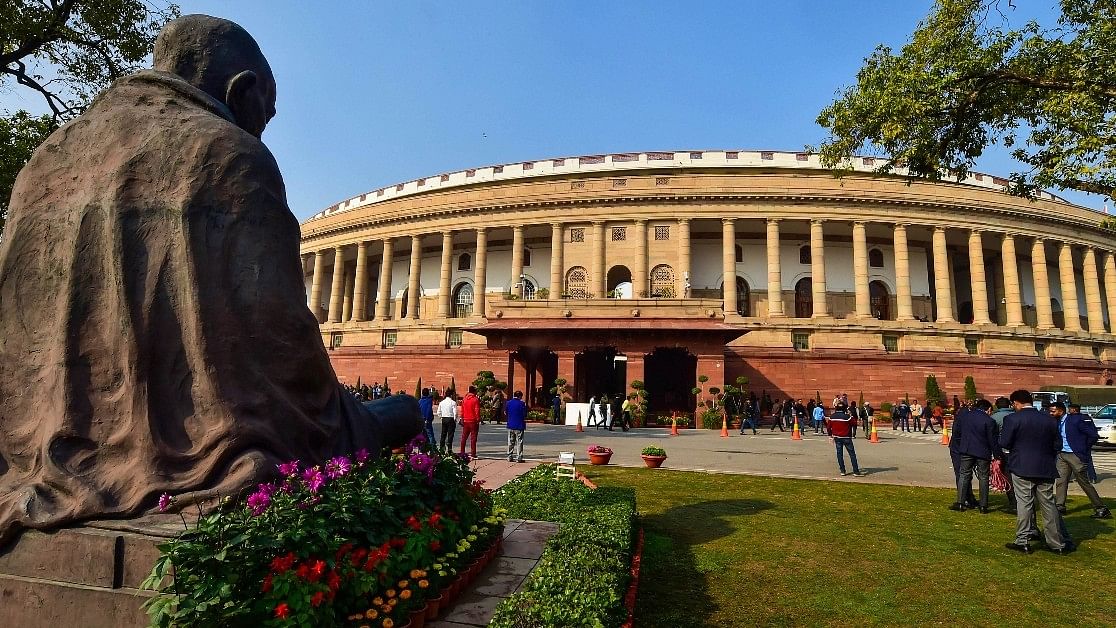
The old Parliament building.
Credit: PTI File Photo
The announcement of a special session of parliament from September 18 to 22 has evoked not only surprise but much speculation about why the session has been convened. The Narendra Modi government has a penchant for drama and sensation, as seen by its actions like demonetisation and the scrapping of Article 370. But surprise and suspense should not be the norms in a democratic system. Sudden, mysterious actions by the government go against the imperative for openness and transparency in democratic functioning and proceedings. Only very few special parliament sessions have been held in the past. Three such sessions were held in 1972, 1992 and 1997 to celebrate anniversaries of Independence and the Quit India movement. A special sitting was held in 2017 to roll out the Goods and Services Tax (GST). The agenda for these sittings were announced well in advance and they were not mysterious events suddenly unleashed on the members of parliament and the people to carry out a political agenda.
There was also impropriety in the method of announcement of the session. Minister for Parliamentary Affairs Pralhad Joshi made the announcement on social media first, before MPs were told about it. The session will not have Question Hour and Zero Hour, which are important features of parliamentary proceedings, nor will it be open for private members’ business. After raising suspense about the session and creating the impression that it will be about some matter of top importance, the government has not given a hint of why it has called the session. The minister has only said that the government was looking forward to some fruitful discussions and debates “during Amrit Kaal”. The secretiveness has given rise to various speculations about the intentions of the government. It is unfortunate that the media, MPs, political parties and other stakeholders in parliamentary democracy have to engage in speculation about the government’s intentions.
By mystifying the session, the government is being unfair to the opposition parties, MPs, and the people. Normally, the agenda of a session is decided by a committee and made public well in time. This gives enough time for parties and members to study the items on the agenda and prepare for discussion and debate in the House. It is wrong to withhold such information and leave everyone to make their own guess. It amounts to disrespect of parliament and the people. Suspense and secretiveness are associated with traits of character like lack of trust in others, conspiratorial conduct, authoritarianism, and the idea that one is cleverer and knows better than others. In governance and public affairs, it shows a lack of respect for others and a refusal to give space to them. That is against the spirit of democracy.